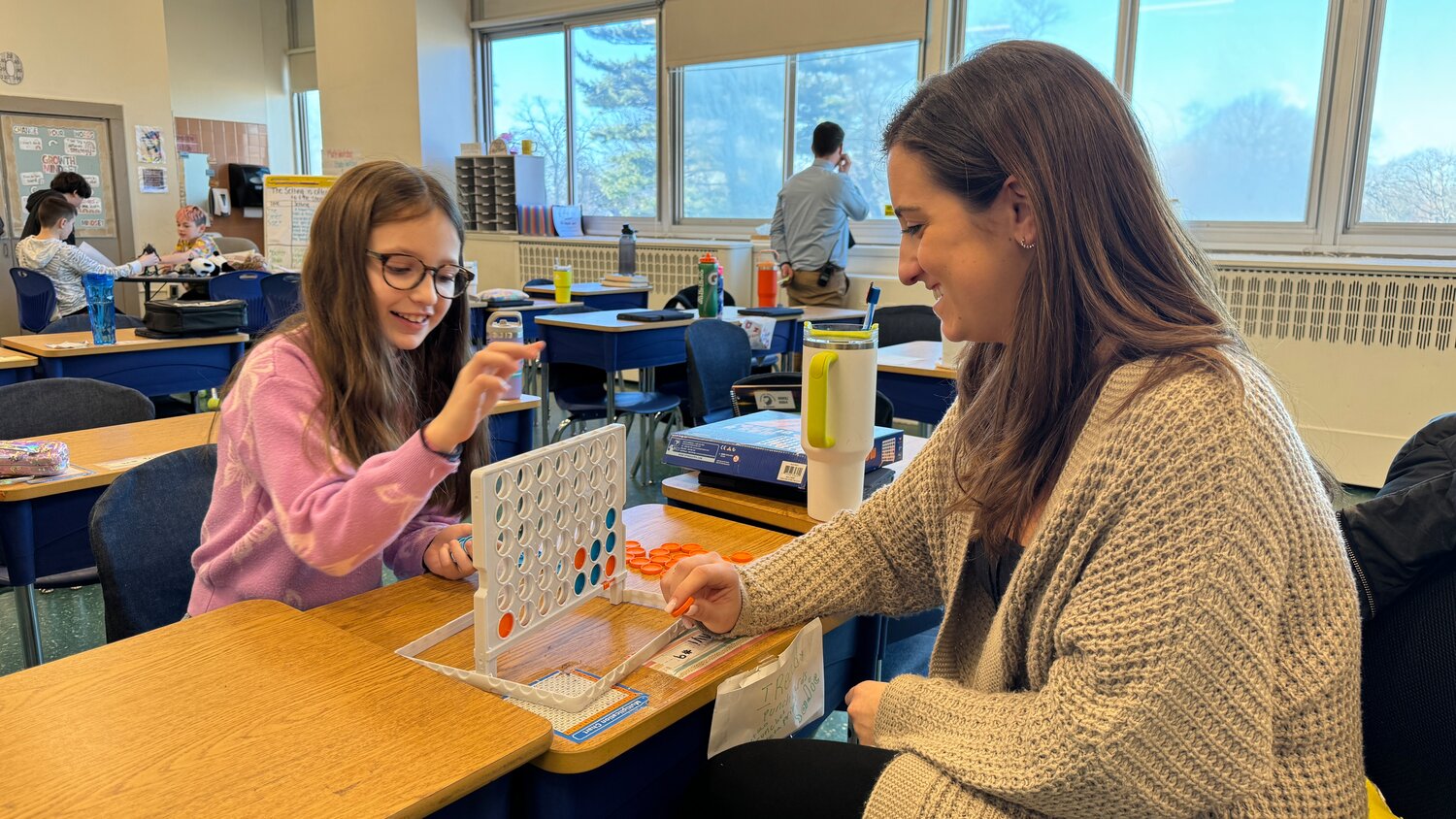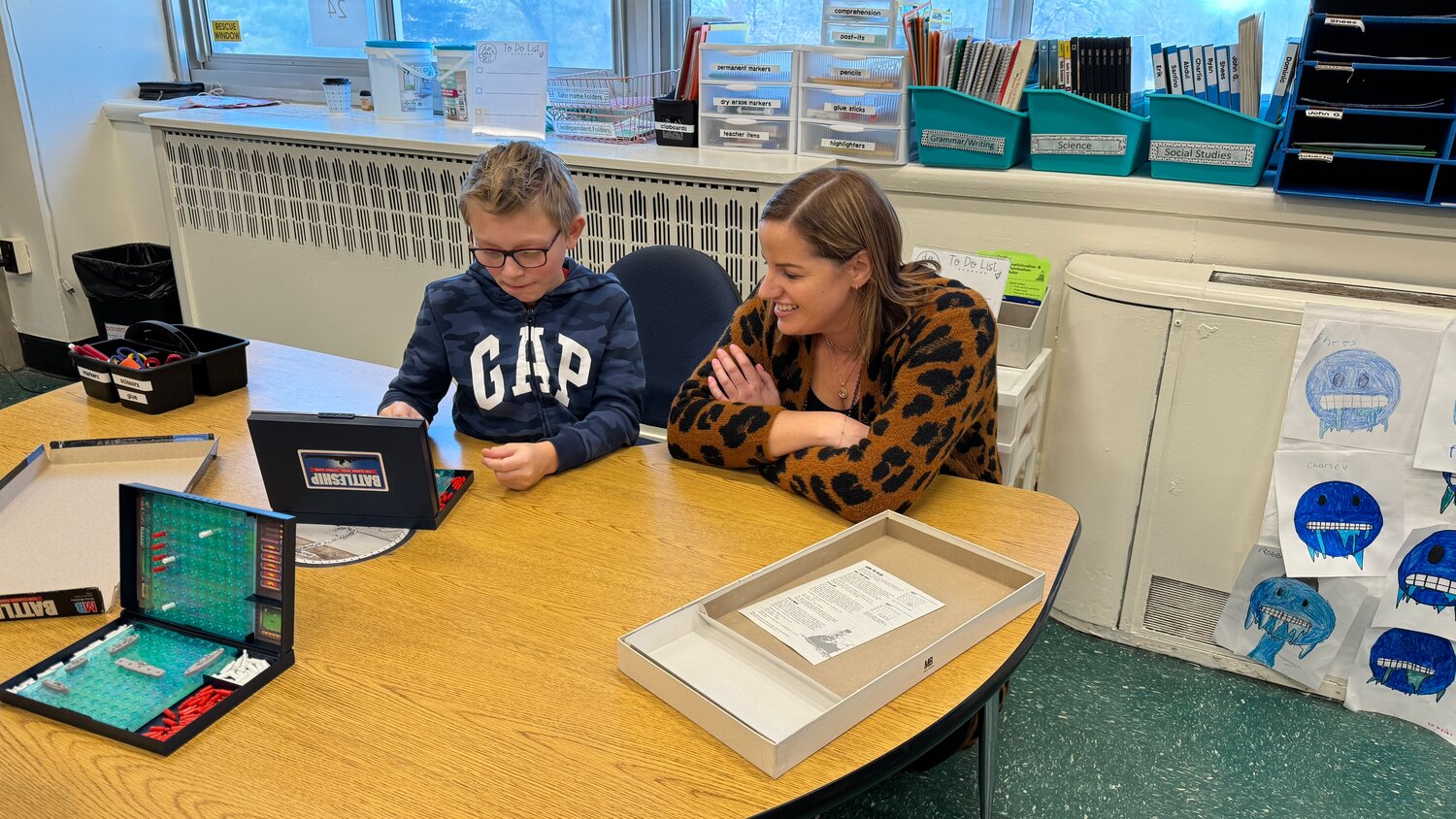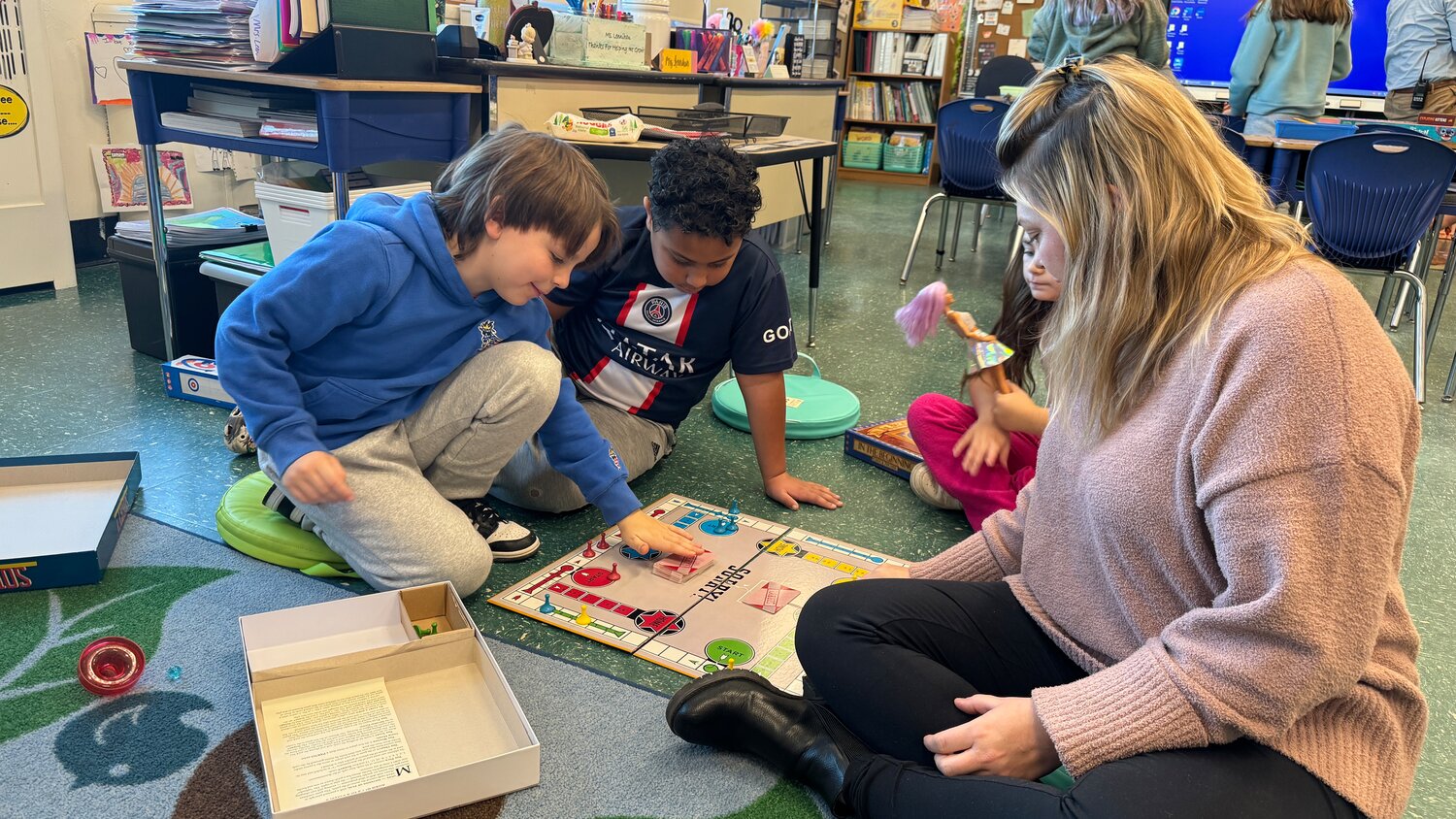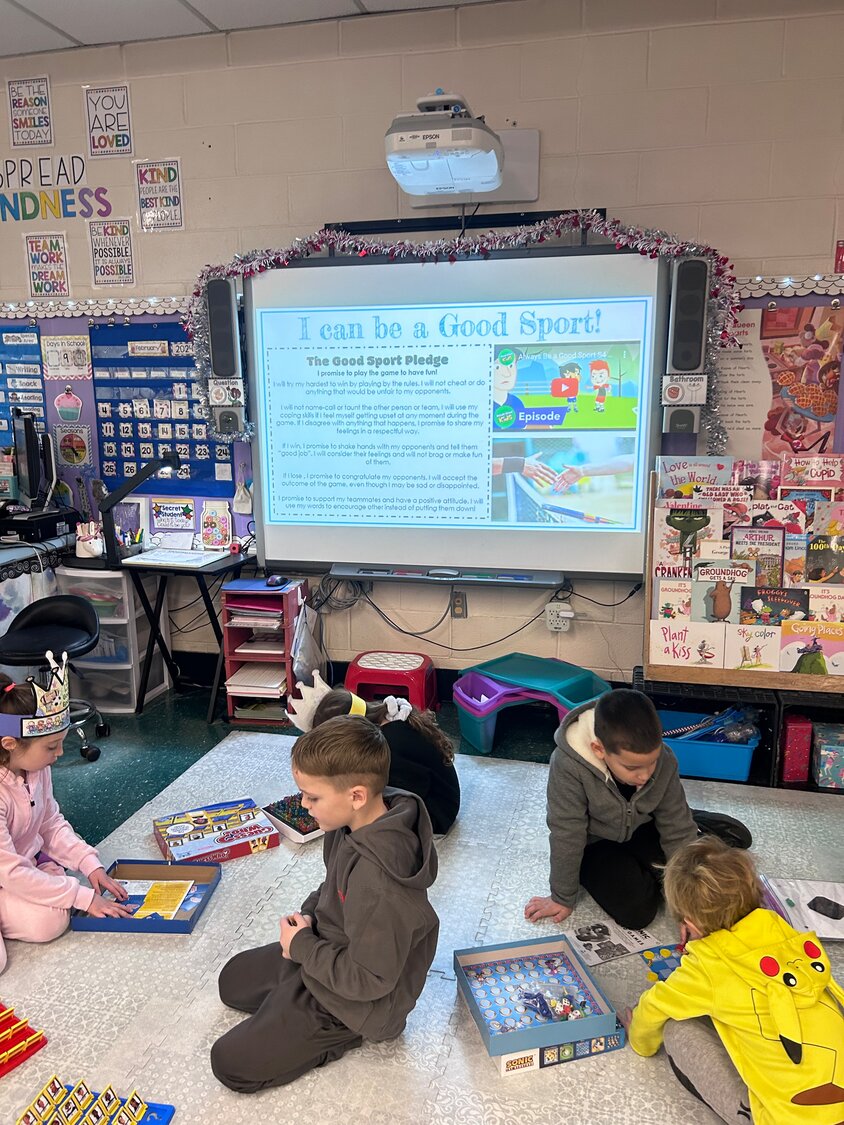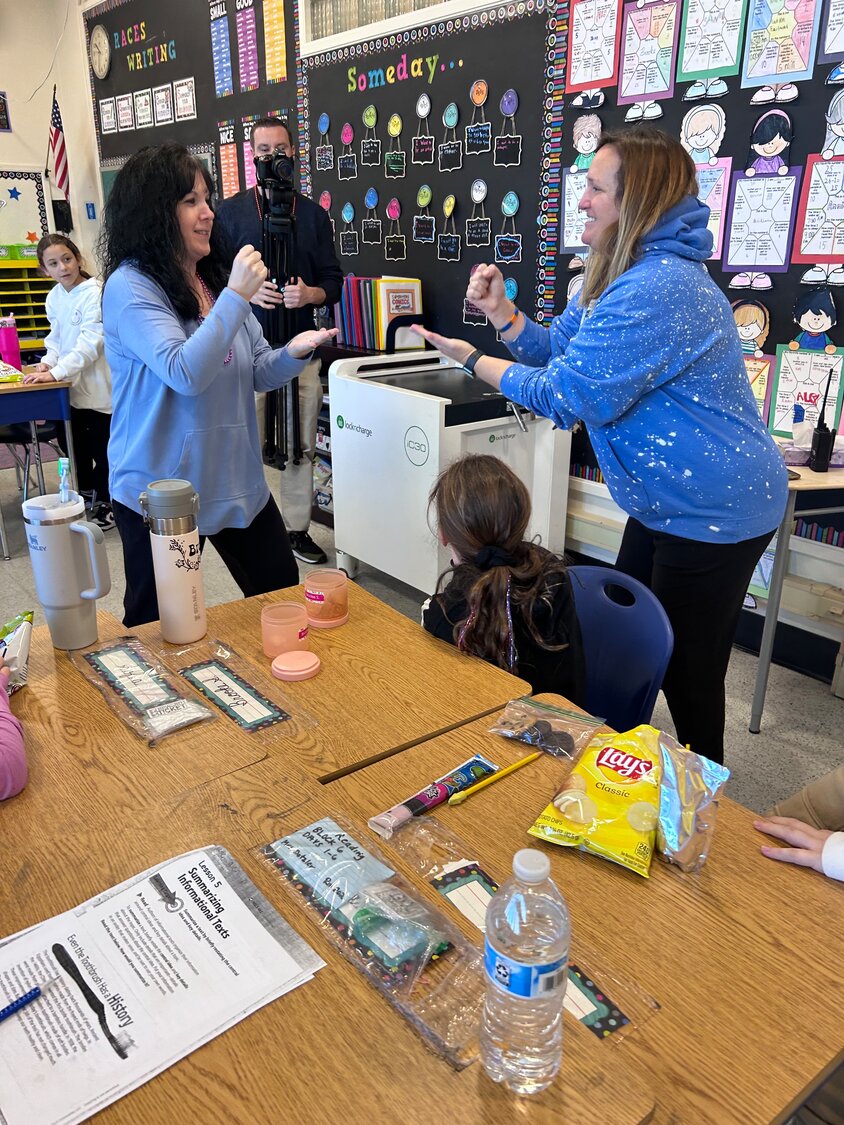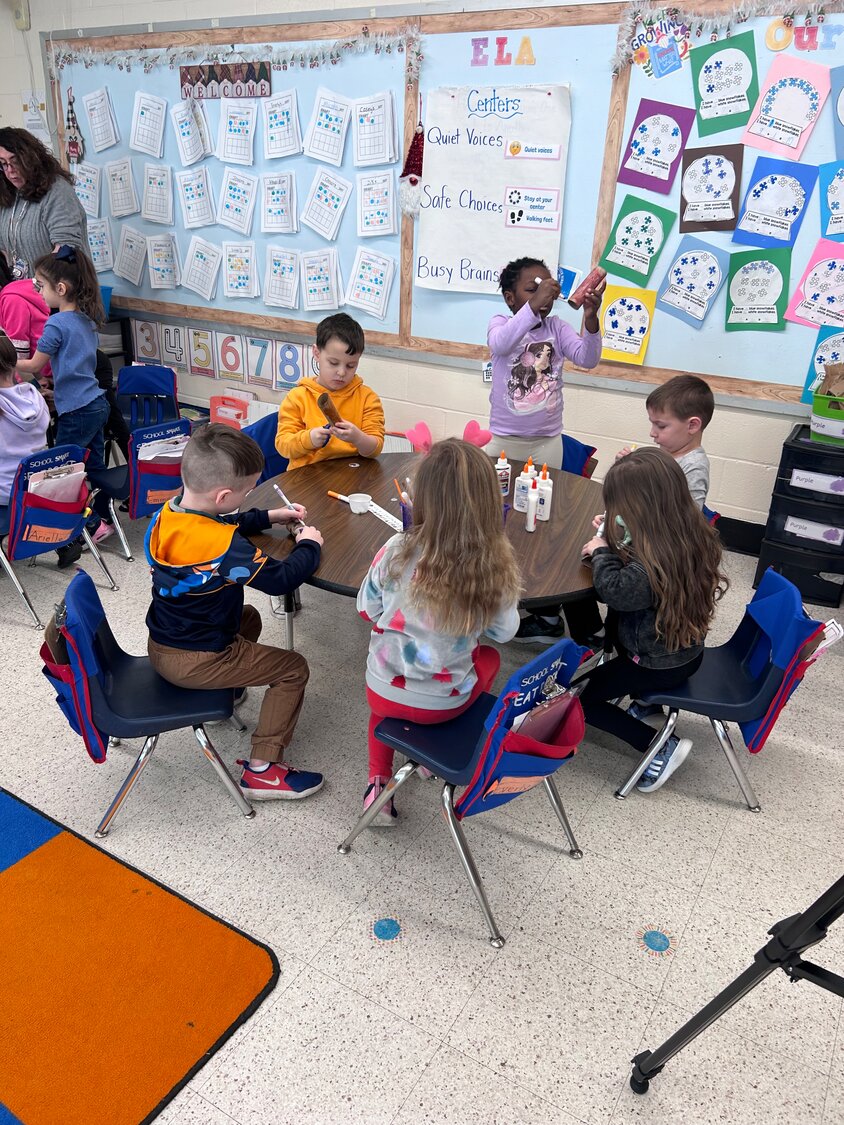Global School Play Day encourages unstructured learning in classrooms
Global School Play Day is celebrated each year on the first Wednesday in February, and promotes the importance of unstructured play for children in classroom settings. The campaign was created by a group of educators in 2015, in an effort to combat reduced playtime at home as well as in school, and in the North Bellmore School District on Feb. 7, administrators, teachers and students embraced all manner of fun throughout the day.
In each of the district’s five elementary schools — four in North Bellmore and one in North Merrick — students disconnected from technology, took a step back from everyday learning and played, with toys, board games, cards and other games that encouraged creativity, critical thinking — and of course, fun.
“It’s an experience for all of our students to be able to basically explore and be creative, which is oftentimes not done enough in school because there’s so much academics, which is important,” Michael Yannucci, Martin Avenue Elementary School’s principal, told the Herald. “But Global School Play Day promotes the ability for students to interact, promotes the opportunity for students to explore and make new friends, and just use life skills, social skills.”
“The whole point of Global School Play Day is to give them that unstructured play,” Danica Brugge, principal of John G. Dinkelmeyer Elementary, said. “This is just to really encourage that creativity and that imagination.”
Lauren Fasano’s fourth-grade class at Martin Avenue had discussed the event the day before. “They got to voice their thoughts, like, ‘we want you to play with us,’ ‘we want you to make sure we’re having fun’ and allow us to step outside of our comfort zone,” Fasano said. “I gave a little bit of my insight about what the classroom should look like. One of our core values is a safe and healthy environment, so I gave a little bit of rules, but said, ‘you’re responsible for the choices you make for yourself’ — and then they also made expectations for each other.”
Some of those expectations included making sure that everyone was included, that everyone would feel like they were allowed to participate, and not putting peers down for not knowing the rules of a game.
Lauren Fleigner, a fifth- and sixth-grade teacher at Martin Avenue, said that some of the games the kids played were structured, but in general, she was hoping to see students solve problems, make choices and use social skills.
In third grade at Martin Avenue, Lori Lennihan, who teaches alongside Danielle Kalinowski, said that they normally incorporate play and learning games into their classroom, but it’s all teacher-directed.
“Now it’s student-directed,” Lennihan said. “They’re bringing some things from home that are their favorite, they’re sharing — kids are learning.”
Whether it was Battleship, Chutes and Ladders or Monopoly, a lot of the teachers fondly remembered playing the games when they were kids. “It’s so interesting to see the games that have stood the test of time,” Lennihan said. “It’s a nice connecting opportunity for the teachers and the kids, for things they played when they were little.”
Kelly Navin, a first-grade teacher at Dinkelmeyer, prepared her students for Play Day by starting it off with a good-sportsmanship pledge. “We talked about how it’s more important to play and have fun than it is to win the game,” Navin said. Kids donned decorated paper crowns they’d made that read, ‘I can be a good sport.”
Shape monsters came to life in Stephanie Meehan’s kindergarten class in Dinkelmeyer as the children combined their learning with play, using toilet paper rolls to create “monsters.” The book “Groggle’s Monster Valentine” inspired the activity.
“It’s something that students really look forward to,” Meehan said of Play Day, “because we offer them the opportunity to bring in their own favorite things from home to share with their peers.”
In Kim Rackley’s fourth-grade class in Dinkelmeyer play was even incorporated into snack time, when students played word games on the front board.
Dinkelmeyer added an extra category to its activities with staff Rock Paper Scissors contests. Teachers and staff were given colorful beaded necklaces, and challenged other staff members to a game. The winners of the matches took the beads of their opponents, and at the end of the day had the most beads and was declared the overall winner.

 43.0°,
Partly Cloudy
43.0°,
Partly Cloudy 